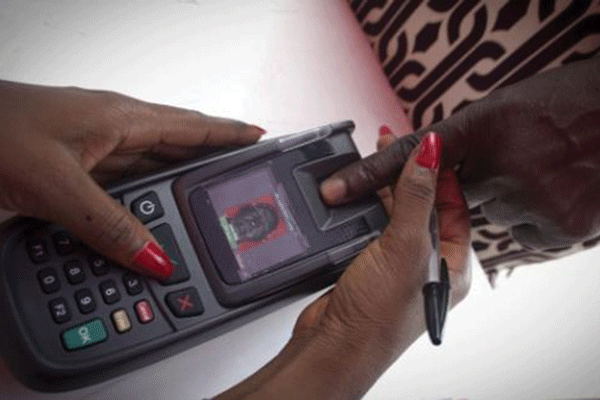Zimbabwe’s opposition leaders are raising strong concerns over a proposed omnibus Constitutional Amendment Bill, warning that centralising voter registration within the executive-controlled Civil Registry Department could set the stage for election rigging in 2028.
This shift would end the current oversight by the Zimbabwe Electoral Commission (ZEC), established in 2005 to mitigate alleged partisanship within the Civil Registry.
The bill, announced by Minister of Justice Ziyambi Ziyambi, would transfer voter registration duties from ZEC to the Civil Registry, led by the Registrar-General.
The proposed amendments would also see young citizens automatically added to the voters’ roll upon turning 18, using biometric data from their ID applications. Voters would be assigned a polling station based on the residential address on their ID, and those who change addresses could update this information before registration to ensure correct polling station assignment.
However, in interviews with CITE, opposition leaders argued that placing this authority in the hands of the Civil Registry—a department with a reputation for partisanship—could compromise the voters’ roll and favour the ruling Zanu PF party.
MDC-T leader Douglas Mwonzora called the proposal “extremely dangerous and retrogressive,” arguing that it reverts to a pre-2005 system Zimbabweans rejected over transparency concerns.
“The Registrar-General is appointed by the President and is therefore part of the Executive. Allowing the Registrar-General to compile a voters’ roll effectively hands control of this key election aspect to the President and the Executive,” he said.
Mwonzora emphasized that these amendments would shift voter registration from an independent Chapter 12 institution to a department supervised by the Registrar-General. He added that the constitution does not require amendments simply for voter registration procedures but does if it involves transferring authority to another body.
The MDC-T leader also criticized the amendment’s introduction of compulsory voter registration, suggesting it could open the door to mandatory voting. “If they’re mandating registration, they might as well introduce compulsory voting to address apathy—though I doubt the government would go that far.”
Mwonzora claimed the amendments set the stage for potential election manipulation in 2028: “This government is trying to lay the groundwork for rigging. Zanu PF knows the upcoming elections will be difficult, and now they want to control the process. Zimbabweans must reject this omnibus amendment.”
Nicholas Ngqabutho Mabhena, Secretary-General of the Zimbabwe Communist Party (ZCP), argued that mandatory registration infringes on citizens’ rights to choose whether to participate.
“Normally, every citizen should register to vote, but it is a right, not a mandate,” Mabhena said. “Some people, for various reasons, choose not to register, and voter registration shouldn’t be imposed.”
He recommended focusing on making registration easier and more accessible for new voters.
In Bulawayo, opposition figure Swithern Chirowodza voiced concerns over past controversies involving the Civil Registry and foreign contractors allegedly involved in election manipulation, suggesting it foreshadows further issues.
“In the past, NIKUV (an Israeli IT company) was reportedly involved with the Civil Registry. Registering voters under the Civil Registry, given current Zanu PF influence, will only increase election opacity,” he said. “Zimbabweans should remain vigilant whenever Zanu PF makes proposals, as these often prioritize self-interest over transparency and democracy.”
Chirowodza stressed that ZEC’s independence is essential for ensuring fair oversight and maintaining a transparent voters’ roll, which he said should be accessible to all political parties in a digital, analysable format to enable truly free and fair elections.
Admire Dube of the Patriotic Front echoed these concerns, calling for independent auditors to oversee the process to prevent potential manipulation.
“We are wary of the government’s biased approach to matters like elections. Independent auditors should be appointed to oversee the process and ensure it is protected,” Dube said.
He also noted that if the amendments pass, Zimbabweans in the diaspora should be automatically added to the voters’ roll. “If the government genuinely respects citizens’ voting rights, they should amend the constitution to include a diaspora vote.”

